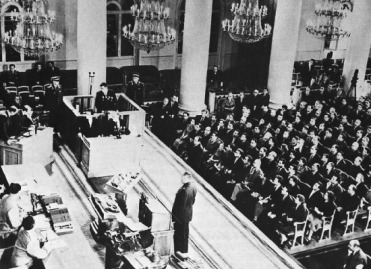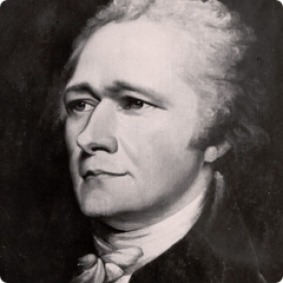What is The Bill of Rights?
"Government, in my humble opinion, should be formed to secure and to enlarge the exercise of the natural rights of its members; and every government, which as not this in view, as its principal object, is not a government of the legitimate kind."
~James Wilson
~James Wilson
The Bill of Rights is the document that was responsible for reforming The Constitution so that the Anti-Federalists would be satisfied. With the Bill of Rights, The Constitution could exist without intense opposition, but there were those who were against The Bill of Rights.
The Bill of Rights is the document that gave specific rights to individuals along with the national constitution
Anti-Federalists pushed for its ratification because they were afraid to lose their liberties to the all powerful government
The Bill of Rights would help people keep certain rights that they felt The Constitution did not specifically describe.
Anti-Federalists pushed for its ratification because they were afraid to lose their liberties to the all powerful government
The Bill of Rights would help people keep certain rights that they felt The Constitution did not specifically describe.
These were rights such as:
- Trial by jury
- Rights of the accused
- Protection against double-jeopardy (being tried twice for the same crime)
- Self-incrimination
The Federalists attempted to counter the Anti-Federalists argument
The Federalists believed that The Constitution already protected people's rights
They argued that a government that is founded on the rights of its people doesn't need a Bill of Rights
Also, the people running the government would be elected by the people, and they would be replaced by new members of the government after a certain time (House of Representatives after 2 years, Senate after 6, President after 4, etc.)
This way, America would never turn into a government like the monarchy of Great Britain
Federalists called The Bill of Rights unnecessary and Alexander Hamilton even argued that it could be dangerous
He asked, "Why declare things shall not be done which there is no power to do? Why, for instance, should it be said, that the liberty of the press shall not be restrained when no power is given by which restrictions may be imposed?"
Like the Constitution, The Bill of Rights brought with it new ideas and new conflicts
He asked, "Why declare things shall not be done which there is no power to do? Why, for instance, should it be said, that the liberty of the press shall not be restrained when no power is given by which restrictions may be imposed?"
Like the Constitution, The Bill of Rights brought with it new ideas and new conflicts


